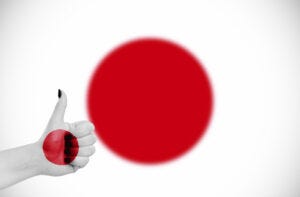
Japan’s regulators have approved ARCT-154, CSL and Arcturus’ COVID-19 vaccine based on self-amplified messenger RNA (sa-mRNA) technology.
Japan’s Ministry of Health, Labor and Welfare (MHLW) gave the nod to ARCT-154 as an initial COVID-19 vaccination and booster for adults yesterday, marking the first approval of a vaccine based on sa-mRNA.
“Today’s approval marks a historic and exciting milestone as the first sa-mRNA vaccine in the world to be registered, and supports CSL’s promise to protect global public health,” said Jonathan Edelman, SVP of Vaccines Innovation Unit at CSL.

DepositPhotos/yoka66
Sa-mRNA gives the body instructions to replicate mRNA, amplifying the amount of protein made, potentially leading to less antigen being used.
ARCT-154 is based on Arcturus Therapeutics’ STARR technology, which combines self-replicating RNA with its LUNAR lipid nanoparticle (LNP) platform technologies. The firm claims the former triggers rapid and prolonged antigen expression within host cells, resulting in protective immunity against infectious pathogens. The LUNAR tech, meanwhile, tackles delivery problems typically associated with viral vectors and existing lipid vector technology by capturing therapeutic nucleic acids and safely moving them to target cells using an endocytosis process.
CSL, a major player in the vaccines space, teamed with Arcturus last November to access the technology and codevelop the COVID-19 jab, along with candidate vaccines targeting influenza, and a further three global respiratory infectious diseases.
The $200 million upfront deal was described by analytics and consultancy firm Clarivate as “the most valuable RNA platform partnership” in a report published earlier this year. Nearly three years on from a pandemic that fast-tracked mRNA technology to commercial fruition, the report showcased sa-mRNA as one of most promising platforms driving the next-generation of vaccines.
“Self-amplifying mRNA technology has the potential to be an enduring vaccine option,” said Nobel laureate Drew Weissman on the back of the CSL/Arcturus approval. “I look forward to seeing this next generation mRNA technology protect many from COVID-19 and possibly other harmful infectious diseases.”
About the Author
You May Also Like

schedl_b_and_w.jpg?width=100&auto=webp&quality=80&disable=upscale)
schedl_b_and_w.jpg?width=400&auto=webp&quality=80&disable=upscale)



